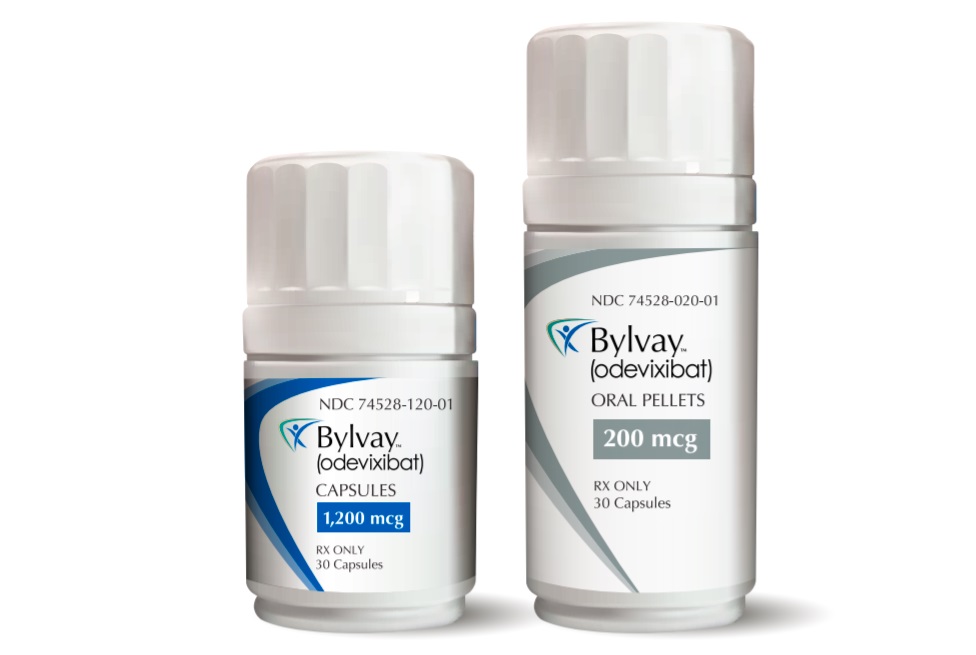

Children who have the rare liver disorder PFIC face the prospect of cirrhosis and liver failure before reaching age 10. Along the way, the disease manifests as severe itching with no FDA-approved therapeutic treatment. Until this week.
The regulator on Tuesday approved odevixibat, an Albireo Pharma drug developed to treat severe itching, or pruritus, in patients who have the liver disorder progressive familial intrahepatic cholestasis (PFIC). The decision came one day after European regulators gave the nod to the drug. Boston-based Albireo said the drug will become available in the U.S. in coming days, marketed under the name “Bylvay.”
PFIC is an inherited liver disorder in which the organ is unable to properly drain bile, leading to a buildup of the digestive fluid. The disease is classified into different subtypes, depending on genetic mutation. The only treatments for the condition were surgeries that diverted bile, or a liver transplant. Speaking on a conference call Wednesday, Albireo CEO Ron Cooper said that interhepatic cholestasis was first described in the mid-1900s, and specific genes for PFIC characterized in 1998. FDA approval of the Albireo drug, in patients 3 months of age and older, covers all subtypes of PFIC.
“It has taken over 20 years to make the impossible possible,” Cooper said. “We are now providing the first ever nonsurgical treatment for PFIC patients and their families.”
According to Albireo, of the estimated 100,000 patients who have cholestatic liver disease, about 15,000 have PFIC, not counting those in China and India. The company calculates that there are about 600 PFIC patients in the U.S. The way pruritus develops in PFIC patients is not completely understood. The Albireo drug is a small molecule that decreases the reabsorption of bile acids. Manufactured as a capsule, the drug can be swallowed in that form or sprinkled onto soft foods.
The FDA approval is based on data from two Phase 3 clinical trials. In the first, a randomized, double-blind, placebo-controlled study, the drug met the main goal of showing a statistically significant change in pruritus and bile acid over the course of 72 weeks of treatment. Those results were confirmed in an open-label Phase 3 extension study, where the drug continued to show sustained reduction in bile acids in the blood as well as improvement in pruritus up to 48 weeks. The drug was well tolerated by patients; the most common adverse reactions included elevated liver enzymes and diarrhea.
Pruritus has been proven to be tough target for drug developers. A small molecule developed by Menlo Therapeutics failed in clinical trials testing it in pruritus of unknown origin and pruritus associated with atopic dermatitis. The Bridgewater, New Jersey-based company, which was renamed VYNE Therapeutics, stopped development of the compound last year. Earlier this year, Stamford, Connecticut-based Cara Therapeutics reported its experimental treatment for pruritus in mild-to-severe atopic dermatitis failed a Phase 2 study.
Among those pursuing treatments for pruritus associated with liver and kidney conditions is venture-backed Escient Pharmaceuticals of San Diego. Last week, the company reported Phase 1 results showing that its small molecule, EP547, was safe and well tolerated by both healthy volunteers and patients with chronic liver or kidney disease.
Bylvay is dosed by weight, said Pamela Stephenson, Albireo’s chief commercial officer. The average weight of patients in clinical studies was 18 kilograms (about 39.6 pounds). At the average 18 kg weight, the average annual price of Bylvay, before any rebates or discounts, will be $385,000. The drug will be made available in bottles, each containing a 30-day supply. Stephenson said the per bottle price will be disclosed at a later time.
With the Bylvay approval, Albireo was also awarded a rare disease priority review voucher. These vouchers entitle a company to receive speedier priority review on a future drug candidate. But companies can also sell these vouchers at prices topping $100 million dollars. Chief Financial Officer Simon Harford said the company plans to sell its priority review voucher, but the timing of a sale and the price will depend on the market and the number of companies looking to buy such a voucher.
Albireo reported having a cash position of $186.3 million as of the end of the June. Excluding any proceeds from selling the priority review voucher, the company estimates that its cash will support the company into 2023.
Albireo is also studying Bylvay in other rare liver diseases affecting children. Two Phase 3 studies are ongoing, one in biliary atresia and another in Alagille syndrome.
Photo by Albireo Pharma


